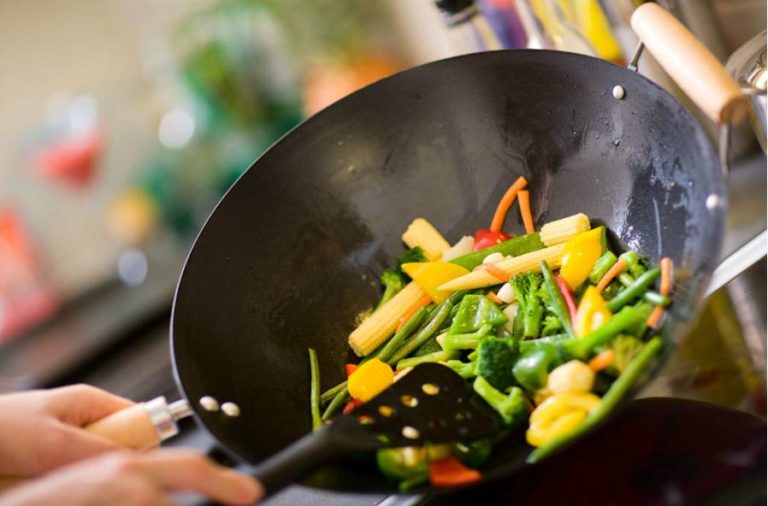Buying bulk is a way to go given that you save on costs through economies of scale not to mention that you get to save on frequent transport costs to the stores.
The challenge arises from the fact that getting to store your foodsfor a prolonged period may prove a headache.
If you are trying to solve that puzzle, then this article has got it all figured for you!
1. Never Store Potatoes, Onions and Apples Together
The first rule you will have to keep in mind is that it is a mistake to store onions, potatoes, and apples together. These three producers are never happy together enough to form a good team.
2. Store Onions in Pantyhose
Your onions are good enough to last for up to 8 months but only if they are stored in pantyhose. Separate each onion by tying them separately
3. Avoid Moulds in Berries
Vinegar is very good at keeping your berries for a long time. Just wash the berries using vinegar mixed with water. Mix one part of vinegar in ten parts of water and use it to wash off the berries immediately they get home.
4. Your Honey Can Last Forever
Honey has a pretty long lifespan, but the trick lies in how you store it. A cool dry place is recommended for storage of honey. Make sure that you tighten the jar before storage.
5. Milk Can Last Longer than You Imagine
Did you know that milk could last for up to three months? Just freeze your milk in a jar and then you can just thaw whenever you want to use.
6. Get Scrambled Eggs for Whole Year!
If you are a fan of scrambled eggs then you can always store your egg yolks. To do this, mix the egg yolk with a bit of sugar or salt in a bowl. You can then place the mixture in a freezer bag and store them in a freezer.
7. Preserve Your Favourite Fresh Herbs
Herbs can turn brown when they get stuck in a freezer. To avoid this, you can put them in olive oil before storing them in a freezer.
8. Keep Your Bananas Fresh
To store bananas, you can use plastic wraps around the stem but make sure you also separate the bananas as well.
9. Use Foils in Place of Baked Lasagna
To increase the longevity of Lettuce, Broccoli, and Celery, you should try using a thin Aluminium foil.
10. Avoid Storing Tomatoes in a Freezer
There is a huge misconception that many people have when storing tomatoes. Most people tend to think that tomatoes can last for long in a freezer, but the opposite is actually true.
It is actually a better idea to store your tomatoes at room temperature in a bowl lined with paper towels.
11. Store your Apples for 6 Months
Storing your Apples in a humid environment at a temperature of 30-35°F is the optimal condition recommended. They can last up to 6 months if you use this technique.
12. Avoid Storing Cheese in Plastics
No one seems to like the taste of plastic cheese and if you sail on the same boat then parchment paper is the solution. It will ensure you get to maintain the taste and flavor of your cheese for long.
13. Run your Refrigerator at the Correct Temperature
Most refrigerators run at around 38°F, but you can turn to a temperature of about 36°F to increase the shelf life of what you store in the fridge.
14. Use Mason Jars
Mason Jars are much better in the sense that they do not get stained easily coupled by the fact they keep your foodstuffs fresh. So, just throw away the Tupperware as soon as possible.
15. Keep Your Ginger Fresh
To keep your ginger fresh, grate them into small pieces and place them in a parchment-lined tray. You can place this tray in a freezer until the ginger is frozen. You can then transfer the ginger into a tight jar and keep the jar in the freezer.
16. Store Carrots in a Sandbox
This traditional method is actually very effective in keeping root vegetables for long. Storing your carrots in a moist sandbox can actually keep them fresh for months.
References:
- Rahman, S. (1999). Handbook of food preservation. New York: Marcel Dekker.
- Desrosier, N. W. (1970). The technology of food preservation. Westport, Conn: AVI Pub. Co.
- Madison, D., & Centre Terre Vivante. (2007). Preserving food without freezing or canning: Traditional techniques using salt, oil, sugar, alcohol, vinegar, drying, cold storage, and lactic fermentation. White River Junction, Vt: Chelsea Green Pub.





Unlike this picture; don’t store eggs in the fridge, it shortens their shelf life.